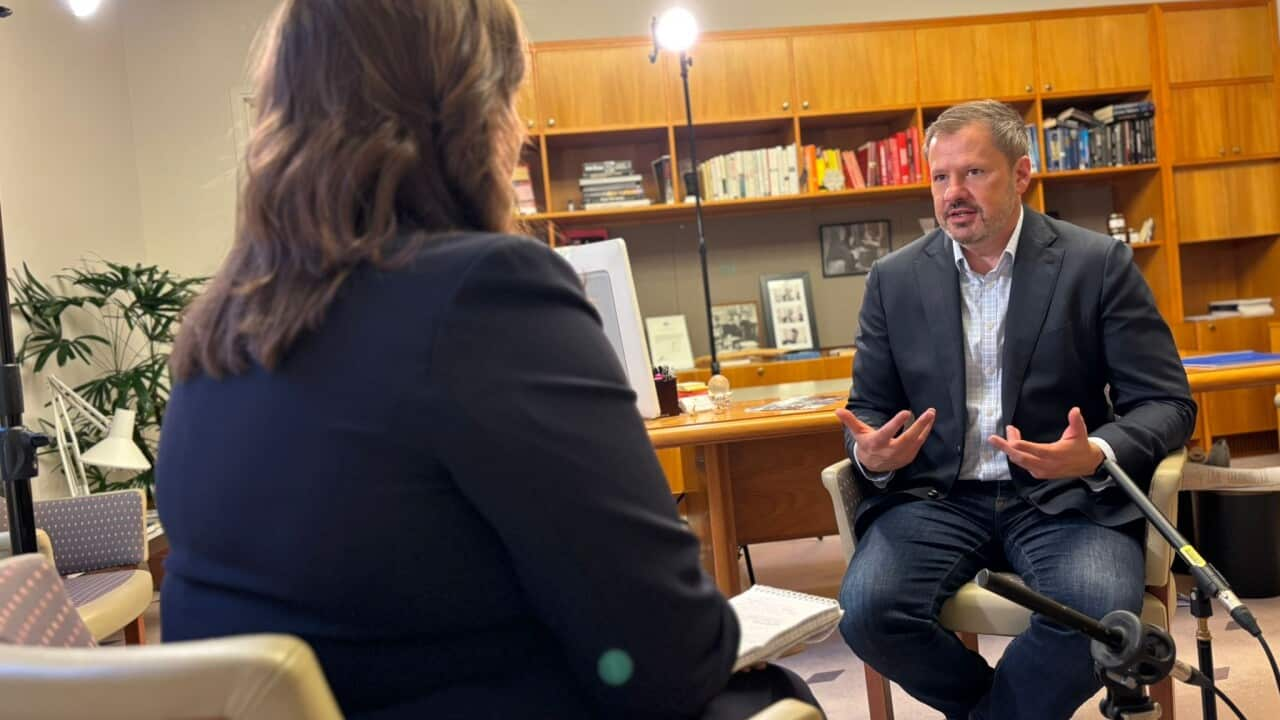TRANSCRIPT
18 year-old Hasrat Gill is arriving for training at an indoor sports facility in Melbourne's south-east.
She's wheeling a kit bag almost as big as she is, and wearing the training kit of Australia's national cricket team.
Her call-up to the Australian under-19s tour of Sri Lanka in March is the culmination of years of hard work.
She's told SBS about her reaction when she first heard the news.
“I didn't believe it, to be fair. The first time I was told was by my state coach and he was like 'you're going to Sri Lanka', and I was like 'why am I going to Sri Lanka?' I didn't believe it, it took me a couple of days for it to sink in, but it was really exciting.”
Born in Amritsar in the Indian state of Punjab, Hasrat Gill migrated to Australia at the age of three.
As a teenager, she quickly made a name for herself, selected to join the Melbourne Cricket Club Academy before making it to their first-eleven side, all while managing the stresses of high school study.
Gill's personal coach, Aldo Kerner, spotted her talent when she was just 11 years old.
REPORTER: :What was it like, what did you see in her?”
KERNER: “I saw a very determined girl who didn't give an inch and never took a back step.”
Even though it's now the off-season and her team won't be training together until June, Gill and her coach still train for at least two hours a day, working on her batting and crafty leg-spin bowling.
Her commitment to the game is plain for all to see.
“I think for me I love training and as a sportsperson, a lot of the work you do is at training. You don't play that much, compared to how much you train. So, I think you've got to enjoy it and you love it and I think it's been a bit of a process as well over time. I've definitely committed myself more and I guess I've started enjoying it so much that I could just come and bat for hours, and bowl for hours.”
She's also cognisant of the migrant experience she brings to the game.
“It was quite the norm having Indians or Sri Lankans or any international people in your side while I was growing up, but I guess I feel like I just have a bit more responsibility to represent two cultures, not just one, and I really pride myself on that.”
Gill's mother, Jagroop, describes it as an 'overwhelming' feeling to hear about her daughter's national team selection.
"I was at temple when my husband texted me saying that she's going to Sri Lanka, she got selected. I was emotional as well, it was a big deal for us, as I said, running around, doing all that stuff, trying to manage the house and games and practices and everything, and you know how much effort your child is putting in, so seeing her achieving all that, it's very nice."
Jagroop says it was equally gratifying to hear the response from their extended family back in India.
"Her grandma, she's in India, and she's had four daughters. Being Indian culture, it's more about boys. She always had that in her head that having boys is more precious or something, but her views and her thoughts are changed now, and she's so happy, and her aunties and everybody there, they are very very happy because she's the first girl in the family achieving all this."
But even in Australia, barriers do remain.
According to Cricket Australia's own data, 18 per cent of cricketers here are of South Asian background.
At the elite level, they only make up four per cent of players contracted to state and territory teams.
Two thirds of South Asian players report it was 'challenging' to find and join a local cricket club in Australia, compared to one third of non-South Asian respondents.
Sonya Thompson is Cricket Australia's head of national development.
“Obviously Cricket Australia wants to be a sport for everyone and so we're really looking at increasing the opportunities for multicultural people across all aspects of cricket. So that looks at wanting to increase the number of participants at entry level but also making sure that there's real opportunities for participants all across the pathway, so that's for the talented ones all the way through to that high-performance area.”
Gill's coach, Aldo Kerner, sees her as forging a path for the next generation of young cricketers.
“I think it's a cultural change, so I would say in the last six months there's a 40% increase of girls wanting to get coached, and I think this is a good role model, and Australia is giving you the opportunities and there's no limit. So if you want to train like she wanted to train, I'm there.”
This promising teenager has seized those opportunities as she makes her mark on the pitch.













